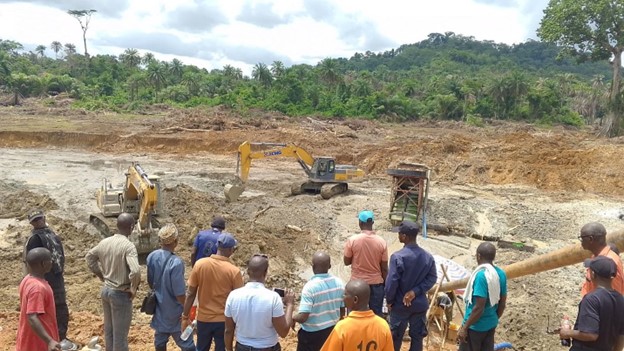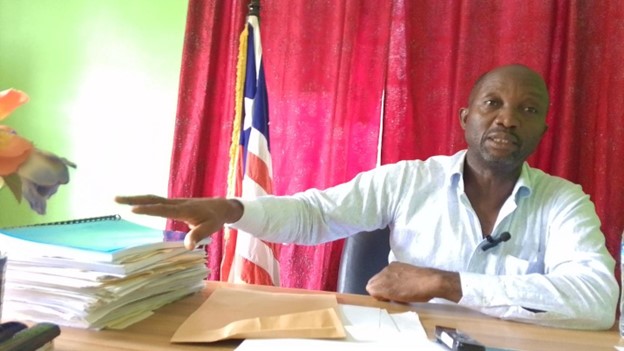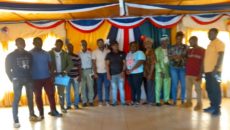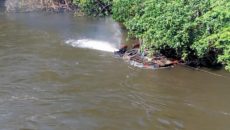BOPOLU CITY, Gbarpolu – Gbarpolu Superintendent Sam K. Zinnah has called for a serious reconsideration of Liberia’s mining laws, particularly highlighting the issue of an unjust 3 percent royalty fee imposed on the extraction of the country’s valuable resources.
“The Liberian Legislature needs to seriously consider amending the Mining Law of Liberia,” Superintendent Zinnah declared in an exclusive interview with The Bush Chicken at his office in Bopolu City on Thursday, July 4.
His call drew attention to the glaring disparity between the value of resources extracted by concession companies and the meager royalties paid to the government. With companies reaping millions or even billions of dollars from Liberia’s resources while remitting only a fraction back to the country, Zinnah questioned the fairness and equity of the current system.
Chapter 17 Section 17.4 of the 2000 New Minerals and Mining Law stipulates that all mineral royalties be taxed at “not less than three percent and no more than ten percent, except silica sand and building and industrial minerals, which shall not be more than five percent.”
Zinnah says the current mining law in Liberia is archaic and inadequate, allowing concession companies to extract millions or even billions of dollars in resources while only paying a mere 3 percent royalty fee to the government.
Highlighting the deficiencies of what he calls a “dinosaur law,” he also said concession companies were taking advantage of a legal loophole to manipulate data and underreport their revenues to evade taxes, depriving the Liberian government of crucial funds for national development. In response to these challenges, Zinnah proposes a comprehensive reform to enhance the mining sector’s transparency, accountability, and revenue generation.
Zinnah’s reform blueprint includes establishing a rigorous monitoring mechanism involving critical institutions such as the Liberia Extractive Industries Transparency Initiative, the Liberia Revenue Authority, the Ministry of Mines and Energy, and qualified mining engineers and geologists. He believes deploying teams to oversee every Class A and Class B concession site will enhance a tighter regulatory framework that closes existing loopholes and prevents illicit practices that erode the government’s revenue base.

Superintendent Zinnah and locals tour a mining site in Gbarpolu. Photo: Henry B. Gboluma, Jr.
“Let us tighten the screws,” Superintendent Zinnah urged, emphasizing the need for proactive measures to safeguard Liberia’s resources and ensure that the country benefits equitably from its natural endowments.
By bolstering monitoring and reporting mechanisms, Zinnah believes that Liberia can seal the loopholes that have long plagued the mining sector, leading to increased government revenue that can catalyze sustainable development and progress across the nation.
Many callers on a local talk radio show hosted by the Voice of Gbarpolu agreed with the superintendent’s impassioned plea for mining law reform. They said it aligned with the Unity Party’s goal of a fair and equitable distribution of the country’s wealth.
Featured photo by Henry B. Gboluma, Jr



